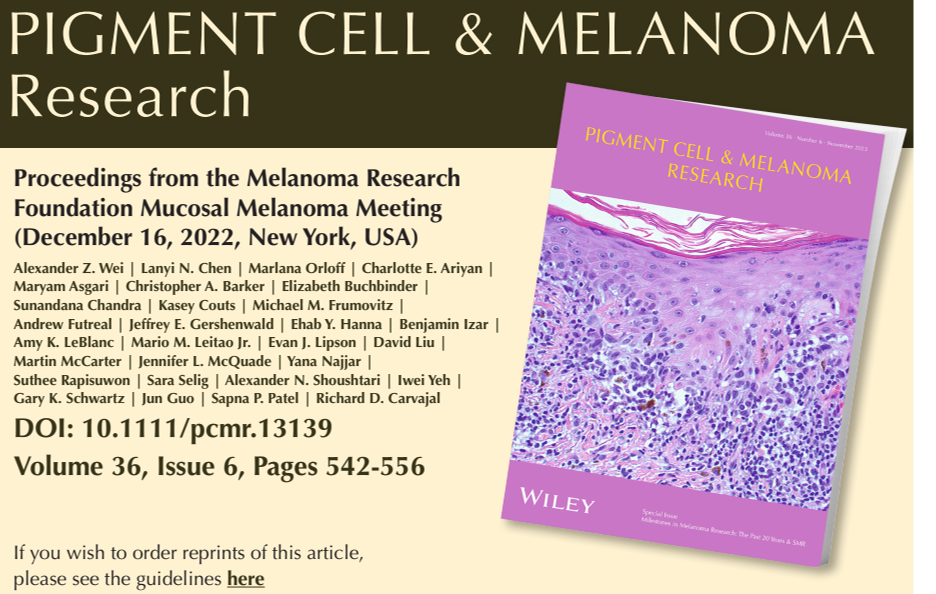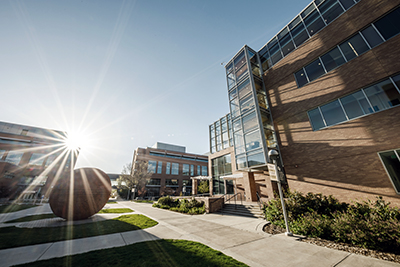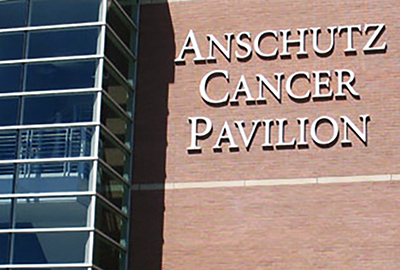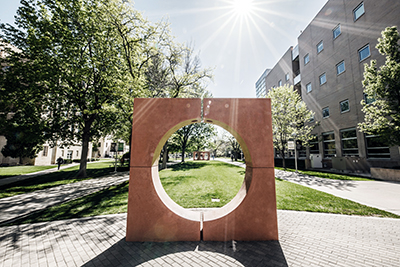Shedding light on non-sun related melanomas.
Improving the lives of patients with rare melanomas through specialized care and research.
Our Mission
Welcome to the CU Center for Rare Melanomas, a joint clinical and research center dedicated to the understanding and treatment of rare, non-sun related types of melanoma such as mucosal, acral, and ocular. Our mission is to uncover causes and improve prevention, diagnosis, and treatment of rare melanomas through:
- Cutting-edge basic, epidemiologic, and translational research
- Development of clinical testing specifically for rare melanomas
- Initiation of clinical trials designed for patients with rare melanomas
- Building a collaborative network to link rare melanoma researchers and clinicians world-wide
- Increase awareness of rare melanomas in the medical community and general public
Center Overview
- Learn more about the center
- Meet our faculty and staff
- About the Patten-Davis Foundation
Research Overview
- Read about our goals
- Learn about current projects
- Collaborate with us
- Request samples
-

Our mucosal melanoma patient survey is LIVE!Opens in a new window
Mar 1, 2024One of the most commonly asked questions by mucosal melanoma patients is "why did I develop this disease???" Cancers can be caused by genetic risk factors (think a germline mutation passed down and multiple family members affected), environmental factors (think radon exposure, chemical exposures at work), and/or lifestyle factors (think smoking, HPV in cervical cancer). While clinicians and researchers have access to genomic DNA from patients to evaluate genetic risks, the only way we can study environmental and lifestyle factors is by getting that information directly from PATIENTS! Given the particularly sensitive nature of lifestyle factors that may impact vulvovaginal and/or anorectal melanomas, we felt an anonymous survey is the best way to obtain this information. Our survey is a two-part survey: first, patients anonymously complete their survey on environment and lifestyle hisotry. Then, they get a unique ID number to give to their oncologist to complete a second survey anonymously (the oncologist does not see any patient survey answers), which provides clinical information that is sometimes hard for patients to answer. We have an initial goal of 250 participants, and hope this data will provide some knowledge that can contribute to prevention and earlier detection of mucosal melanoma. If you are a patient, please take our survey and help spread the word! And, if you are a treating oncologist, please take the extra time to complete the important follow up survey.Opens in a new window Full story -

Proceedings from the MRF sponsored Mucosal Melanoma Workshop are published!Opens in a new window
Nov 1, 2023Collaboration is key when it comes to clinical and translational research for rare diseases. Out of all the "rare" forms of melanoma, mucosal melanoma is truly the rarest of the rare as it only accounts for ~1% of malignant melanoma cases. To date, mucosal melanoma research is lagging behind all other melanoma subtypes. In order to boost collaboration within the mucosal melanoma community, the Melanoma Research Foundation (MRF) sponsored a one-day workshop at Columbia University on December 15, 2022. The workshop, "Increasing collaboration amongst the mucosal melanoma community" brought together clinicians, researchers, and patients in a first-of-its kind meeting focused solely on mucosal melanoma and how we can work collaboratively moving forward to launch mucosal melanoma based research findings from risk factors to effective therapies. The published article provides a review of mucosal melanoma, an overview of the topics and talks given during the workshop, and a compass of which direction the field needs to head as we move forward toward better understanding and treatments for mucosal melanoma.Opens in a new window Full story


